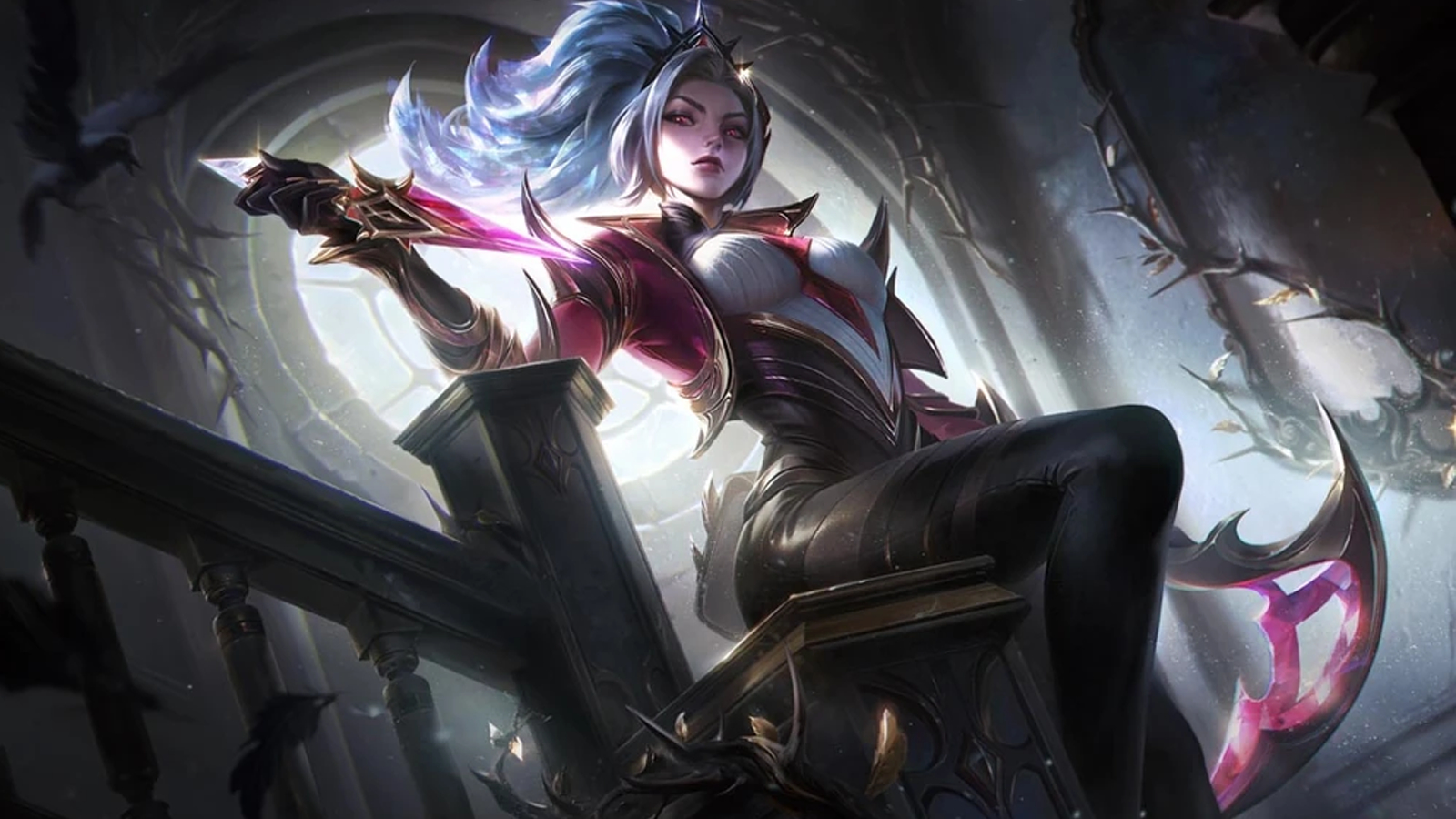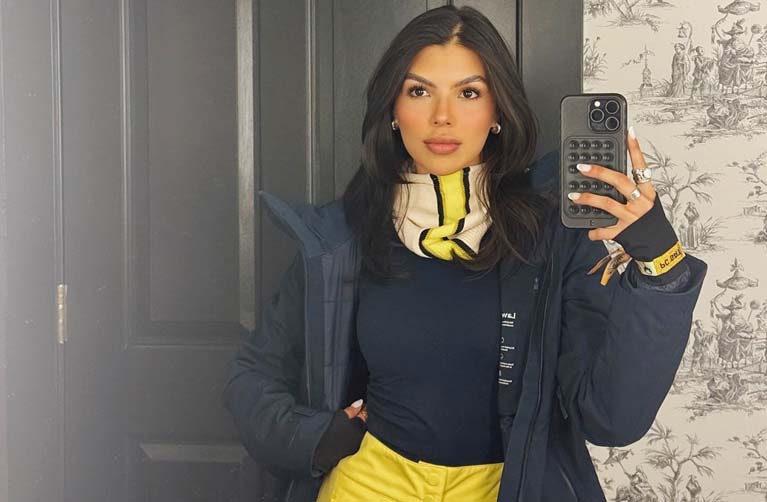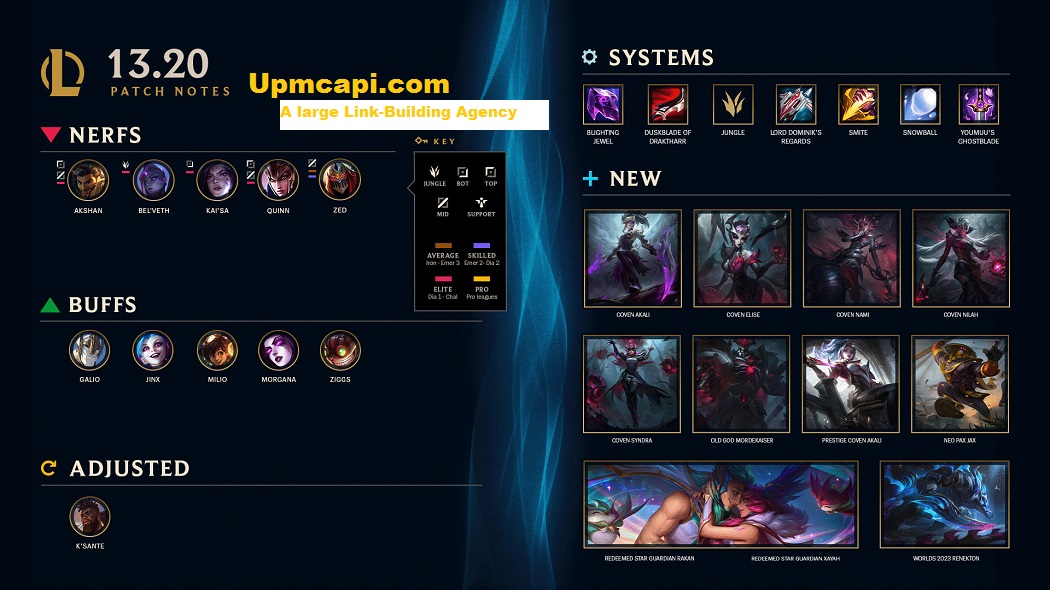Introduction:
League of Legends, the immensely popular online multiplayer game, thrives on maintaining fair and balanced gameplay. One crucial aspect that contributes to this balance is the concept of anti-poaching in patch notes. Let’s delve deeper into what anti-poaching entails and its significance in the gaming world. In the fast-paced world of competitive gaming, the pursuit of talent is relentless. However, within the ecosystem of games like League of Legends, a dark practice known as poaching has emerged, threatening the integrity of professional play. In this article, we delve into the phenomenon of anti-poaching measures, particularly within the realm of League of Legends, exploring its evolution, impact, and the strategies employed to combat it.
What is Poaching in Gaming?
Poaching, in the context of gaming, refers to the act of recruiting players from other teams without proper negotiation or consent. It often involves luring talented players away from their current teams through lucrative offers or promises of better opportunities.
In a game as competitive as League of Legends, maintaining a fair and balanced playing field is crucial for the overall health of the esports ecosystem. Poaching disrupts team dynamics, undermines player loyalty, and can lead to unfair advantages for certain teams, ultimately tarnishing the integrity of the game.
The Evolution of Anti-Poaching Measures
Historical Context of Poaching in Gaming
Poaching is not a new phenomenon in the world of gaming. Since the early days of competitive esports, teams have sought to gain an edge by recruiting top-tier talent from rival organizations. However, as the industry has grown, so too have the stakes involved, leading to more formalized anti-poaching measures.
Initiatives Taken by Game Developers to Counter-Poaching
Recognizing the detrimental effects of poaching on competitive integrity, game developers like Riot Games have implemented various measures to curb this practice. These initiatives range from enforcing stricter player contract regulations to actively penalizing teams found guilty of poaching.
Understanding the Impact of Poaching in League of Legends
How Poaching Affects the Competitive Landscape
Poaching not only destabilizes individual teams but also disrupts the balance of power within the competitive scene. When top players are constantly being poached, it creates a sense of instability and unpredictability that can hinder the growth of the esports ecosystem as a whole.
Psychological Impact on Players and Teams:
For players and teams, the threat of poaching can create a toxic environment characterized by mistrust and insecurity. Players may feel undervalued or disposable, while teams must constantly be on guard against potential poachers, leading to heightened stress and anxiety.
Riot Games’ Anti-Poaching Policies:
Overview of Riot Games’ Stance on Poaching
Riot Games, the developer behind League of Legends, has been proactive in addressing the issue of poaching within its competitive ecosystem. By prioritizing player welfare and fair play, Riot has established itself as a leader in the fight against poaching.
Understanding Anti-Poaching:
Anti-poaching refers to the strategies and measures implemented by game developers to prevent the exploitation or abuse of game mechanics by players. In essence, it aims to maintain fair competition and ensure that all players abide by the intended rules and guidelines of the game.
Importance of Anti-Poaching in Maintaining Game Balance
Anti-poaching plays a pivotal role in upholding the integrity of the gaming experience. Without effective anti-poaching measures, certain players might gain unfair advantages, League of Legends to an imbalance in gameplay. This can significantly diminish the enjoyment and competitiveness of the game for others.
History of Anti-Poaching
The concept of anti-poaching has evolved alongside advancements in gaming technology and player behavior. In the early days of online gaming, developers primarily relied on manual interventions to address instances of cheating or exploitation. However, as games became more complex and widespread, automated anti-poaching systems were introduced to detect and penalize offenders more efficiently.
Anti Poaching Techniques
Various techniques are employed to combat poaching in online gaming environments. These may include algorithmic detection of suspicious behavior, server-side validations, and player reporting systems. Additionally, continuous monitoring and updates to the game’s code are essential to stay ahead of emerging poaching tactics.
Impact of Anti-Poaching on Patch Notes
Anti-poaching measures often influence the content of patch notes released by game developers. Changes related to gameplay mechanics, character abilities, or item properties may be implemented to address known poaching exploits. Therefore, avid players closely scrutinize patch notes to understand how anti-poaching efforts may impact their gameplay experience.
Community Response:
The gaming community’s response to anti-poaching measures can vary widely. While some players appreciate the efforts to maintain fairness and competitiveness, others may feel frustrated by perceived limitations on their gameplay strategies. Constructive feedback from the community is crucial for developers to refine and optimize anti-poaching systems.
Addressing Concerns
Common concerns regarding anti-poaching include false positives, where legitimate gameplay is mistaken for exploitation, and the potential for overregulation stifling creativity. Developers must strike a delicate balance between preventing abuse and preserving the freedom for players to explore diverse gameplay styles.
Future Trends
Looking ahead, the future of anti-poaching in League of Legends and other online games is likely to involve increasingly sophisticated AI-driven detection systems and more proactive measures to deter potential poachers. Collaboration between developers and the community will remain essential in shaping the direction of anti-poaching initiatives.
Expert Insights:

Gaming experts emphasize the critical role of anti-poaching in maintaining a level playing field for all players. They stress the importance of continuous innovation and adaptation to stay ahead of evolving poaching tactics while ensuring minimal disruption to the overall gaming experience.
Specific Measures Taken by Riot Games to Prevent Poaching
Riot Games has implemented a range of measures aimed at deterring poaching and protecting the interests of players and teams. These measures include strict enforcement of player contracts, thorough investigation of poaching allegations, and penalties for teams found guilty of poaching.
Strategies for Combatting Poaching in League of Legends
Education and Awareness Campaigns
One of the most effective ways to combat poaching is through education and awareness campaigns. By educating players, teams, and fans about the negative effects of poaching, it is possible to foster a culture of respect and fair play within the esports community.
Strengthening Player Contracts and Regulations
Another key strategy for combating poaching is to strengthen player contracts and regulations. By implementing clearer guidelines and stricter enforcement mechanisms, players and teams can feel more secure in their contractual agreements, reducing the likelihood of poaching.
Recent Developments in Anti-Poaching Efforts
Updates on the Latest Anti-Poaching Policies by Riot Games
Riot Games continues to refine and improve its anti-poaching policies in response to emerging challenges and trends within the esports industry. This includes updates to player contract templates, increased transparency in transfer negotiations, and enhanced support for player welfare.
Case Studies of Successful Anti-Poaching Measures
There have been several notable instances where anti-poaching measures have proven effective in preserving the competitive integrity of League of Legends. By studying these case studies, we can glean valuable insights into what works and what doesn’t when it comes to combating poaching.
Impact on Esports Ecosystem:
How Anti-Poaching Efforts Influence the Esports Ecosystem
The success of anti-poaching efforts extends beyond individual players and teams to the broader esports ecosystem. By creating a more stable and secure environment for competition, anti-poaching measures contribute to the long-term sustainability and growth of esports as a legitimate form of entertainment.
Future Implications and Challenges
Looking ahead, the fight against poaching in League of Legends and other esports will continue to evolve as new challenges emerge. From navigating legal complexities to adapting to shifting player dynamics, there are many obstacles to overcome on the path to a poaching-free future.
Enhanced Player Protection Protocols
In its commitment to safeguarding the interests of players, Riot Games has implemented enhanced player protection protocols within the League of Legends ecosystem. These protocols encompass stringent regulations and guidelines aimed at preventing unauthorized solicitations and ensuring that players have the freedom to make informed decisions about their careers without undue influence or coercion.
Transparency and Accountability in Recruitment Practices
Transparency and accountability lie at the heart of Riot Games’ League of Legends initiatives. By fostering open communication channels and promoting fair recruitment practices, Riot Games aims to create a more transparent environment where players can pursue opportunities with confidence, knowing that their rights and interests are protected. Moreover, stringent enforcement mechanisms are in place to hold accountable those who engage in poaching activities, thereby deterring such unethical behavior.
Collaboration with Stakeholders:
Effective implementation of anti-poaching measures requires collaboration and cooperation among all stakeholders involved in the esports ecosystem. Riot Games actively engages with esports organizations, team owners, players’ associations, and other relevant parties to streamline processes, address concerns, and foster a collective commitment to maintaining integrity and fairness in esports recruitment practices.
Empowering Players with Education and Resources
Empowering players with education and resources is pivotal in combating poaching and promoting a culture of integrity and professionalism within the esports community. Riot Games invests in educational initiatives, workshops, and resources designed to equip players with the knowledge, skills, and resources necessary to navigate the competitive landscape, make informed decisions, and protect their interests effectively.
Embracing Ethical Recruitment Practices
In the competitive realm of esports, the allure of top-tier talent can sometimes overshadow the principles of fair play and ethical conduct. However, Riot Games is dedicated to fostering a culture of integrity by championing ethical recruitment practices. Through clear guidelines, fair negotiations, and respect for contractual obligations, teams and organizations can attract and retain talent without resorting to underhanded tactics or poaching maneuvers.
Creating a Level Playing Field:
Central to Riot Games’ anti-poaching stance is the belief in creating a level playing field where all teams have an equal opportunity to succeed based on merit and skill. By eradicating the insidious practice of poaching, Riot Games aims to ensure that success in esports is determined by dedication, strategy, and teamwork rather than unfair advantages gained through unethical recruitment practices.
Upholding the Spirit of Competition
At its core, esports is about competition, camaraderie, and the pursuit of excellence. Poaching undermines these fundamental values by sowing discord, mistrust, and instability within teams and organizations. By implementing anti-poaching measures, Riot Games reaffirms its commitment to preserving the spirit of competition and fostering a supportive environment where players can thrive and reach their full potential.
Nurturing a Sustainable Ecosystem
A sustainable esports ecosystem hinges on the collective efforts of all stakeholders to uphold integrity, fairness, and ethical conduct. Riot Games recognizes that poaching not only harms individual players but also jeopardizes the long-term viability of the esports industry as a whole. Therefore, by proactively addressing poaching through comprehensive measures and collaborative initiatives, Riot Games lays the foundation for a sustainable and prosperous esports landscape.
Engaging the Community:
Community engagement plays a vital role in combating poaching and promoting ethical standards within the esports community. Riot Games actively solicits feedback, suggestions, and concerns from players, fans, and industry professionals to inform its anti-poaching initiatives and ensure their effectiveness. By fostering a culture of transparency, inclusivity, and accountability, Riot Games empowers the community to actively participate in safeguarding the integrity of esports.
Conclusion:
In conclusion, the fight against poaching in League of Legends and esports as a whole is an ongoing battle that requires collective effort from players, teams, developers, and governing bodies. By implementing robust anti-poaching measures, fostering a culture of integrity and fair play, and staying vigilant against emerging threats, we can safeguard the future of competitive gaming for generations to come.
Remember, poaching not only undermines the competitive spirit of esports but also threatens the livelihoods and well-being of players and teams. By standing together against this unethical practice, we can ensure that esports remains a vibrant and inclusive community where talent is nurtured, respected, and celebrated.









